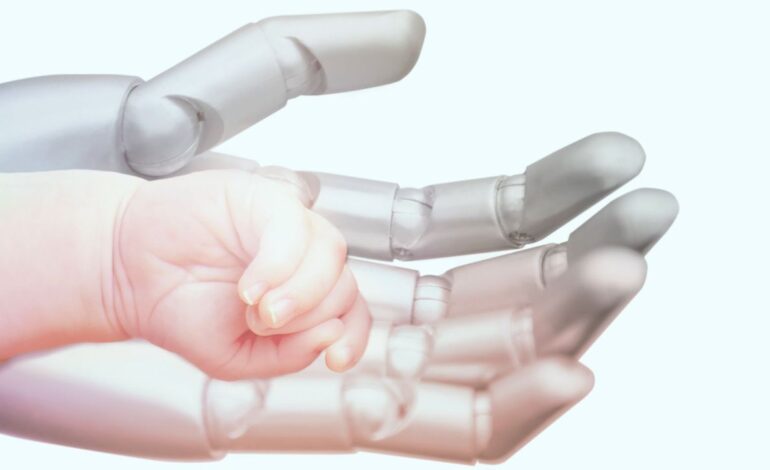Could ‘Pregnancy Robots’ Become Reality? Exploring the Concept

A story that captured public attention this week claimed that a CEO of a technology company in China is developing a “pregnancy robot.” This fictional prototype, according to the reports, aims to sustain a human pregnancy from conception to birth, a process that typically spans about ten months. While the narrative gained traction across various media outlets, it became clear that the concept is purely speculative, igniting a discussion about the feasibility and ethical implications of such technology.
The notion of a robot capable of managing a human pregnancy raises intriguing questions. Could advancements in robotics and artificial intelligence make the development of a pregnancy robot possible? Current technology is rapidly evolving, with innovations in automation and health sciences. Yet, the leap from theoretical discussions to practical implementation remains vast.
Ethical concerns play a significant role in this conversation. The introduction of a pregnancy robot could challenge traditional views on parenthood, attachment, and the very nature of human reproduction. Questions arise about the emotional and psychological effects on individuals who might consider using such a technology. Would a mechanical surrogate alter societal perceptions of family and motherhood?
Moreover, the implications for healthcare systems and social norms would be profound. If such a device were available, it could potentially change how society views pregnancy and childbirth. This also brings to light the disparities in access to technology. Would this innovation be accessible to all, or would it become a luxury available only to those with significant financial resources?
As discussions continue, it is essential to consider the public’s opinion on this topic. A poll has been conducted to gauge whether individuals would consider using a pregnancy robot if it were available. Participants are encouraged to share their thoughts and what factors might influence their decisions.
In the realm of robotics, the idea of machines performing complex biological functions is not as far-fetched as it may seem. Recent developments in robotic technology have shown machines capable of performing intricate tasks. For instance, robots have demonstrated the ability to execute medical procedures with precision, raising the bar for what might be achievable in the future.
The viral nature of the “pregnancy robot” story reflects a growing curiosity about the intersection of technology and human life. While the current narrative may be fictional, it prompts important discussions about what the future may hold. As technology continues to advance, society must navigate the ethical dilemmas that accompany these innovations thoughtfully.
In conclusion, while the concept of a pregnancy robot remains in the realm of science fiction for now, it serves as a catalyst for dialogue about the future of reproduction and technology. As we move forward, the balance between technological advancement and ethical considerations will be crucial in shaping how society adapts to these new possibilities.






